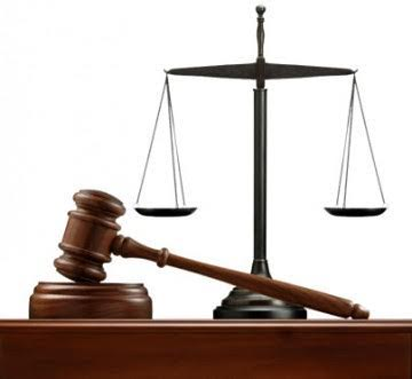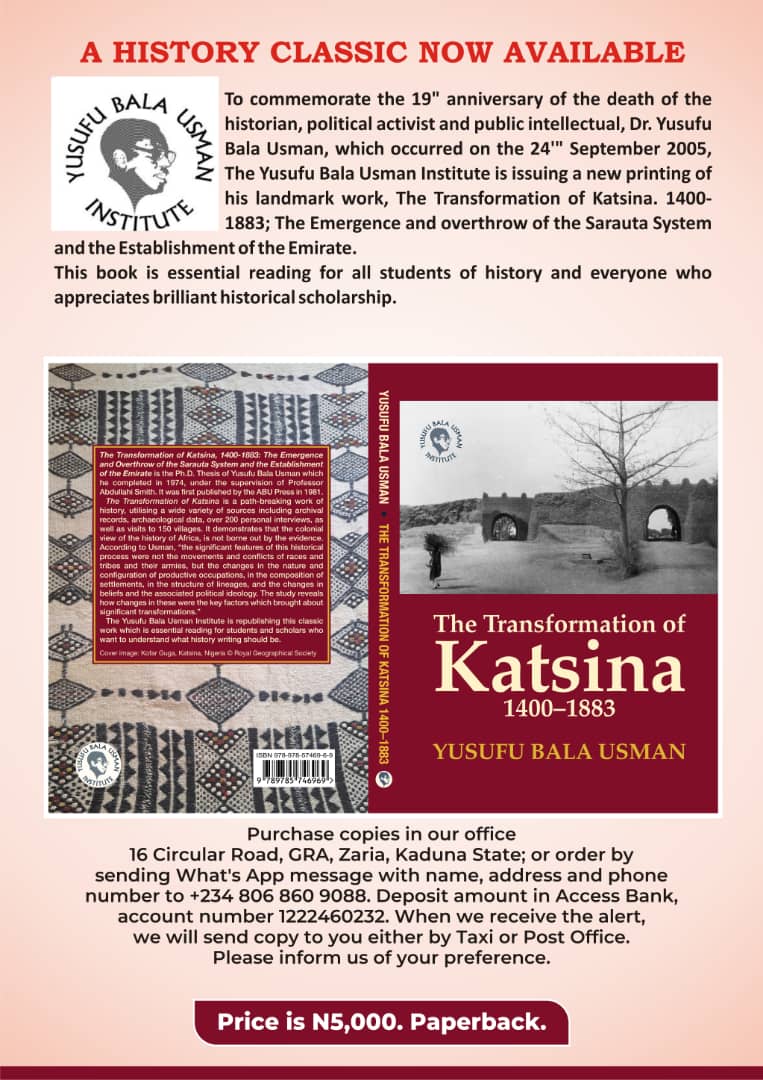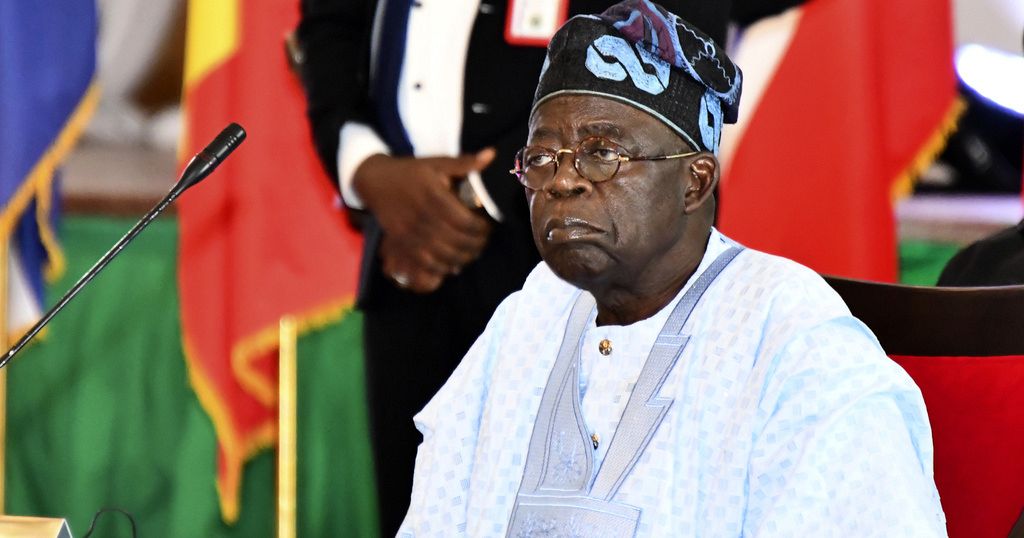Nigerian Judges And Corruption Allegations.

- Katsina City News
- 19 Dec, 2024
- 167
By Abdu Labaran Malumfashi.
19-12-2024.
Sometime in October of last year (5th October, 2023, to be precise), I wrote an article where I asserted that three institutions were Nigeria’s major problems. The name of the article was ‘For Nigeria To Be Great, These Three Institutions Must Change Their Thinking Cap’, and it discussed the influence of money in deciding the outcomes of the decisions of many of many Judges.
The institutions I mentioned are the media, the security organisations and the judiciary. If the three were to get their acts right, and put the nation over and above other considerations, Nigeria would not only be a better place to live or do legitimate business in, but also a place up there competing with the best in the world, I added.
Since that time, things progressively got even worse. Being ‘on the take’ have unfortunately become part and parcel of most a lot of people in the three institutions, an unfortunate development that led to, and allowed, the pervasive corruption taking place in Nigeria. The corruption appears to have so far peeked the most, at the present President Bola Ahmed Tinubu regime.
Often,If is said that ‘Justice delayed, is Justice denied’, but in this country, it must be added that ‘Justice denied is the end of some human lives or freedoms’, going by the many video clips, and statements trending on the social media, about the depths of corruption within the Judiciary.
Parts of the article I wrote, read as follows “Because the government wants the judges to be not in want of the material world, it has made their salary and other entitlements very attractive.
“Still, woe unto him who goes to the court with shallow pockets. Justice in Nigeria is for the highest bidder. I mean those with the longest pockets always have what they want at the courts all the time. Unless justice is for all regardless of one’s social status, the country called Nigeria may remain a third world in terms of development.
“A former top shot at the Supreme Court was forced to leave office earlier than his retirement date because of alleged graft taking levelled against him by those who were in the know. There are so many cases of alleged graft taking at the highest court in the land that it is well neigh impossible for a poor person to get justice there.
“Also, a former head of the Federal High Court was alleged to always have two judgements ready to deliver when a case is before him, and he did not care if the matter is known, because he had the temerity to give back to the looser the exact amount he gave to him since the judgment did not favour him”.
The avalanche of materials about the corruption among judges in Nigeria appears to have been sparked by the highly publicised case of the a very successful lawyer cum businessman, Chief Ape Babalola (SAN), and (the human rights lawyer), Mr. Dele Foratini, who wrote a book, including allegation that the 95 years old SAN corruptly influenced some court judgments. The allegation did not go down well with Mr. Babalola, who took the matter to court in Lagos, but had it transferred to Ekiti, where he was alleged to have most of the Judges as his loyalists.
In his July 25th, 2024 column in Vanguard Newspaper, Olu Fasan wrote that, “It is official. The judiciary is the most corrupt institution in Nigeria; judges are the biggest takers of bribes in this country. A few years ago, I wrote a piece titled “Lord, give Nigeria bold and incorruptible judges”, (Vanguard, April 25, 2019). When I said that Nigerian judges are fantastically corrupt, it seemed as if I was just making an assertion, as if I was just expressing an opinion as a columnist.
“But now, we have an official confirmation. According to a recent survey conducted and published by the National Bureau of Statistics, NBS, in collaboration with the United Nations Office on Drugs and Crime, UNODC, Nigeria’s public officials received N721billion cash bribes in 2023, and judges topped the list of the recipients.
“The 160-page report titled “Corruption in Nigeria: Patterns and Trends”, published this month, makes for sobering reading indeed. Those in denial about how utterly broken and rotten things are in Nigeria must now realise the incongruency of their position with the reality. What hope is there for a country when its judges are the biggest takers of bribes and receivers of kickbacks? According to the United Nations Convention Against Corruption, UNCAC, “judges who cannot be corrupted inspire and compel corrupt-free conduct in a society as a whole”. The converse is also true: Judges who can be corrupted induce and foster corrupt conduct in a society at large.
“Ironically, Nigeria is the second most religious and second most prayerful nation in the world, according to a Pew Research Centre survey. But what is God’s injunction to judges, in the Bible and in the Quran? In Deuteronomy 16:19, God told judges: “Thou shall not pervert justice; thou shalt not show partiality; and thou shall not accept a bribe.” Why? Well, “for a bribe blinds the eyes of the wise, and perverts the words of the righteous.” Sadly, that injunction is more honoured in the breach than in the observance by judges in Nigeria.
“Truth be told, there’s a prevalent perversion of justice in this country, with right called wrong and wrong called right, precisely because Nigerian judges are extremely corrupt. In their book entitled Nigeria: What Everyone Needs to Know, John Campbell and Matthew Page say that Nigeria has “a judiciary notorious for accepting bribes and awarding favourable rulings to the highest bidder.” Campbell is a former US ambassador to Nigeria, and obviously knew, from intelligence, the truth about Nigerian judges; that truth is now formally confirmed. But how can any Nigerian or any foreigner have confidence in the ruling of a Nigerian judge when everyone knows that it was probably influenced by bribery or political pressure?
“This is not a trivial matter. Judges are next to God in terms of their powers: they can order the incarceration or execution of a person; they can decide who is a legislator or a governor; they can set a country in any direction. Recently, the Supreme Court changed the Constitution in the local government autonomy case, and everybody said whatever the court says is final. Yet, last year, the respected senior lawyer, Dr Olisa Agbakoba, SAN, a former president of the Nigerian Bar Association, NBA, told Channels TV: “I’ve lost confidence in what the courts have been doing lately,” adding that “facts and law no longer form the basis of Supreme Court decisions.” But if facts and law don’t influence the decisions of judges, if, instead, bribery and political pressure determine their rulings, what is the future of a country suffused with such judges? It’s a dreadful future indeed!”.
And Adefomola Akintade had also reported on December 9, 2024, that “documents from the United States (US) exposed how Afe Babalola bribed five Court of Appeal judges $1.125 million to buy Adamawa governorship judgment for client Boni Haruna.
“Revelations extracted from a leaked U.S. govt cable showed that senior lawyer "Afe Babalola" spent at least $1.125 million on five judges who sat at the Court of Appeal in the early 2000s to procure a favourable judgement for his client, then Adamawa Governor Boni Haruna. Mr Babalola bribed a panel of five appellate judges led by Justice Pius Olayiwola Aderemi with $225,000 each to restore Mr Haruna to office after an election petitions tribunal sacked him on grounds of electoral malpractice, according to classified U.S. intelligence published by global transparency group, Wikileaks.
“The document cited a senior lawyer’s account of how he followed Mr Babalola to deliver tens of millions of naira to appellate jurists to purchase their preferred ruling. Mr Babalola, 95, had a reputation for winning his cases in his practising years. This trait made him highly sought after by the nation’s who’s whos, including former President Olusegun Obasanjo, governors and many high-profile citizens.
“But a lawyer on Mr Babalola’s team told the U.S. govt that the senior advocate won the controversial matter with cash and that he was among the persons who carried N30 million untraceable bank notes to bribe the justices at Mr Babalola’s behest. U.S. diplomats were alarmed by the glaring disparity between the tribunal ruling that nullified Mr Haruna’s victory and the decision of the Court of Appeal that restored him to office.
“The verdicts of the appeals court and the election tribunal differed so significantly on their findings of the relevant facts that they beg the question of whether one verdict or the other may have been ‘influenced’ by outside parties,” the foreign cable stated. The witness stated that buying judgements “was the normal procedure” for such important cases, which confirmed the diplomats’ suspicions that the verdict that reinstated Mr Haruna’s gubernatorial victory cost N30 million.
“According to an attorney for Haruna, the outcome was ensured in typical Nigerian fashion: with cash,” stated the leaked U.S. government cable. “The attorney, who works for Presidential attorney Afe Babalola, said that when President Obasanjo sent Babalola to take over the an appeal, he also sent cash to be used for the appeal.”
President Bola Ahmed Tinubu recently directed the Federal Capital Territory (FCT) Minister, Nyson Wike, to build large mansions for the Supreme Court justices in places of their choice. This was viewed by many people as an attempt to bribe them in advance for their favourable judgment in the election petition expected to arise from the 2027 presidential election.
Most Nigerians politicians know that Election Petition Tribunals are charades, or exercises in futility, because their verdicts most of the time go to the highest bidder (the one who gives the most money). In that respect, nobody can match the depth of government’s pockets, whether federal or state. No president/ president-elect or governor/governor-elect ever loses at the election tribunal. That is why judges who are known to be incorruptible, are rarely put on election tribunals duty.
The Nigerian voters should interrogate or ask the SANITY of a national president whose delight appears to be progressively adding to the pervasive hardship in his land, instead of reducing it from where he found it.
Despite the pervasive poverty, hunger and anger that have become overwhelming in the country, the president appears to be preoccupied with how to rig the 2027 elections and install himself for a second and final term, so that his CORUPT ways, to accumulate more money, would continue in a way that the present severe conditions in the country would look like a child’s play.
Nigerian voters are therefore advised to be very careful and fastidious about the president’s undemocratic performance, and the type of people who they elect in 2027, so that the corruption, poverty, hunger, incompetence and other lacks would not be in the country all the time, as is the case NOW.
Even in far away United Kingdom (UK), a member of parliament, Honourable Bradley Thomas (MP), who was also a panelist in the Financial Time described the Tinubu regime as the worst ever in the history of the country.
At the moment, apart from the fact that justice goes to the highest bidder, there is a severe hardship across the land, so much so that some people would think of nothing about taking their own lives by themselves, rather than to continue being the hapless, helpless and hopeless victims of the the TINUBU time.
May God guide us to do the right things all the time, so that we may get rid of the bad leadership that is weighing Nigeria and its citizens down. May He also make Nigeria a just society, where those with deep pockets, those with shallow pockets, and even those without pockets, get equal treatment from the courts.
Malumfashi wrote from Katsina.





.jpg)